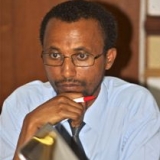In settings characterized by weak human capital and agricultural land degradation, investments in human capital formation and land conservation can be key candidates for triggering sustained economic growth.
In this study, based on insights from growth literature and models of economic transformation, we develop a framework to examine the dynamic interactions between income, human and natural capital in rural Ethiopia. In addition, the trade-offs and complementarities of economic and environmental policies in terms of their impact on growth, investments in human capital formation and land conservation are assessed. The study underscores the centrality of interconnectedness and reciprocal influences between growth and investments in human and natural capital in understanding the long-run implications of policy reforms. Development interventions that are crucial for achieving broad-based and sustainable improvements in household income, human and natural capital are identified, which have wider implications for settings sharing similar socioeconomic characteristics.
